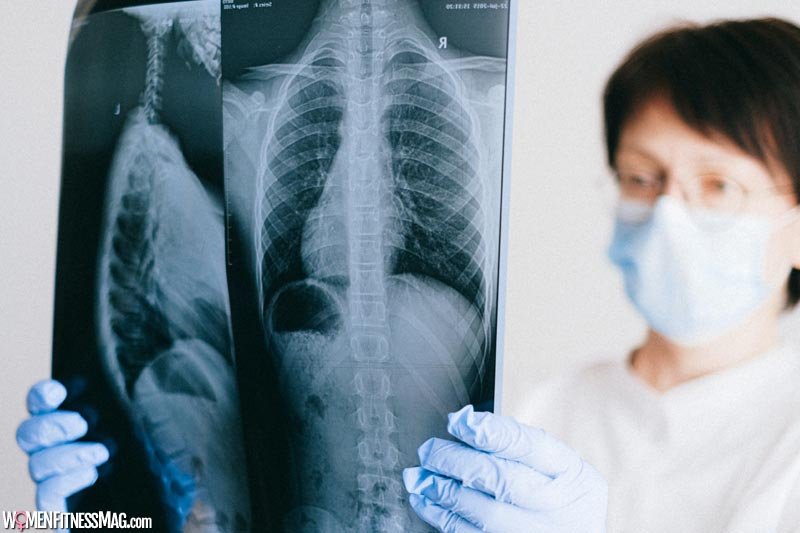Early Signs and Symptoms of Lung Cancer: Lung cancer stands as a formidable global health challenge, marked by its often subtle and elusive early symptoms. Identifying lung cancer symptoms at an early stage is paramount, as it greatly enhances treatment effectiveness and boosts long-term survival rates. Understanding lung cancer causes, symptoms and treatment options is vital for effective intervention.
So go through this article; it will explore the telltale early signs and symptoms of lung cancer.
The Vital Importance of Early Detection
Before you delve into the signs and lung cancer symptoms, it’s crucial to understand the significance of detecting lung cancer at an early stage. Lung cancer typically remains asymptomatic until it has advanced to later stages, diminishing the effectiveness of treatment and lowering survival rates. When identified early, before it has metastasized to other parts of the body, the odds of successful treatment and long-term survival improve substantially.
Persistent Cough
A persistent, enduring cough is among the most common early signs of lung cancer. If you are grappling with a cough that persists for more than three weeks, seeking medical advice is imperative. This cough may manifest as dry or accompanied by mucus, and its intensity may increase over time. Any alterations in the characteristics of your cough should be noted and discussed with a healthcare professional.
Breathlessness
Shortness of breath, or dyspnea, can signal the early stages of lung cancer. If you notice an increased tendency to become breathless, particularly during routine activities, it warrants a medical evaluation. Lung cancer can obstruct airways, hindering the ease of breathing.
Chest Discomfort
Chest pain or discomfort, although stemming from multiple possible causes, should never be disregarded if it persists or worsens. Lung cancer can provoke chest pain that may radiate to the shoulders or back, exacerbated by deep breaths or coughing. While chest discomfort may have other origins, it necessitates a healthcare professional’s assessment to rule out serious conditions.
Unintentional Weight Loss
Unexplained weight loss can serve as a red flag, potentially pointing to underlying health issues, including lung cancer. If you find yourself shedding pounds without alterations in diet or physical activity, consult a healthcare provider. Unintended weight loss may occur as cancer cells consume energy, leading to a gradual decline in body weight.
Persistent Fatigue
Persistent fatigue or weakness that persists despite adequate rest can be another early indicator of lung cancer. The disease can disrupt the body’s energy metabolism, resulting in constant tiredness. If you experience prolonged and unexplained fatigue, it is crucial to consult a medical professional.
Hemoptysis (Coughing Up Blood)
Hemoptysis, the coughing up of blood, is a concerning symptom that demands immediate attention. Although multiple factors can contribute to blood in the sputum, lung cancer, especially when no apparent cause like injury or infection is present, should be promptly investigated by a healthcare provider.
Recurrent Respiratory Infections
Frequent respiratory infections or recurring bouts of bronchitis or pneumonia can serve as early signs of lung cancer. As cancerous tumours obstruct airways, the susceptibility to infections increases. If you find yourself repeatedly grappling with respiratory infections, it’s essential to explore the underlying cause with a healthcare professional.
Conclusion
The early detection of lung cancer plays a pivotal role in improving treatment outcomes and increasing survival rates. While these lung cancer symptoms may overlap with other conditions, they should not be dismissed. If you or a loved one experiences any of the above-mentioned symptoms, seeking prompt medical attention is paramount. Knowing the lung cancer causes symptoms treatment options is crucial for improving the chances of successful treatment and long-term survival. Regular check-ups and screenings are especially crucial for individuals at a higher risk of developing lung cancer, such as smokers or those with a family history of the disease.
Related Videos about Early Signs and Symptoms of Lung Cancer:
Early Signs and Symptoms of Lung Cancer: What to Watch For
stage 1 lung cancer symptoms, 4 symptoms of lung cancer that you should be aware of, how i knew i had lung cancer, symptoms of lung cancer in females, what are the hidden signs of lung cancer?, lung cancer pain areas, lung cancer symptoms on skin, 7 signs of lung cancer,




